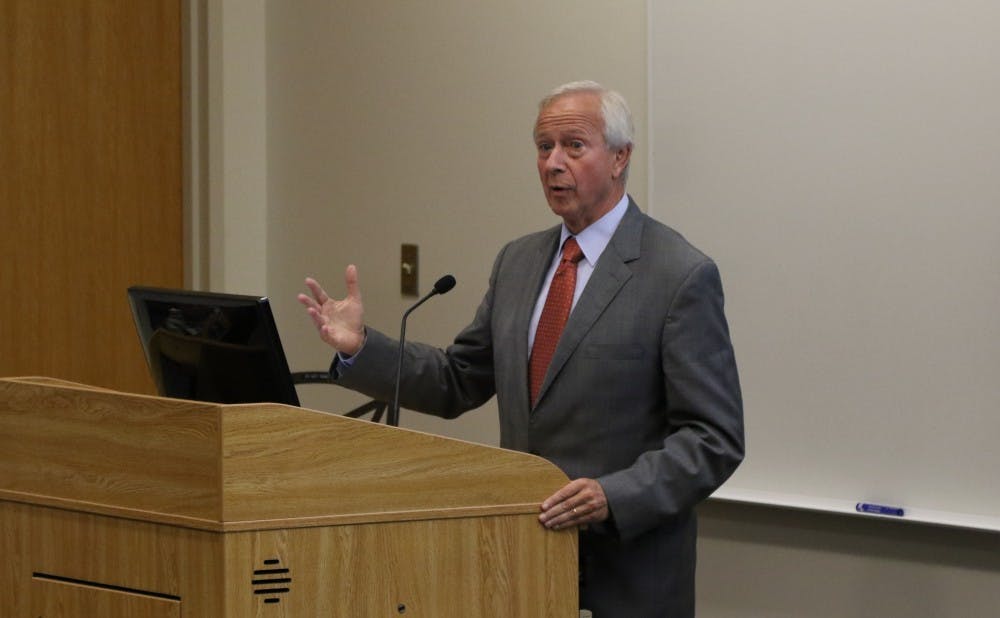Academic Council met Thursday to discuss the launch of a full undergraduate degree program at Duke Kunshan University.
After several previous discussions about the proposal were closed to the public, the council held an open session for faculty to ask questions about the program, which could potentially open by 2018. President Richard Brodhead addressed the council in support of the proposal, describing it as a valuable addition to China’s educational system.
“The Chinese know that the natural product of their own educational system is not altogether the kind of minds, the kind of citizens they want for the future,” Brodhead said. “They look to our liberal arts education that they don’t have—an education that gives a broader, rather than a narrower training.”
He cited the Massachusetts Institute of Technology’s work with the Indian Institutes of Technology as a model for the direction he could envision the program going. Still, he recognized that there were difficult questions to be addressed.
Some who attended the meeting raised concerns about China’s human rights record and the ability to have a true liberal arts education in an authoritarian government.
James Boyle, William Neal Reynolds professor of law, said he was troubled that the liberal arts education provided under an American system could lead to legal repercussions for professors and students.
“The freedom to be critical without [the students] acting on that critique is not a liberal arts education, it’s mental masturbation,” he said.
Several faculty members noted that they had positive experiences working on DKU’s campus. Carlos Rojas, a professor of Asian and Middle Eastern studies who has led seminars at DKU, disputed the idea that a liberal arts degree posed a danger to its participants in China.
“Duke itself is increasingly reliant on students from mainland China... Some of them stay. A lot of them go back to China,” he said. “If we were really concerned about the ramifications for students who come here and are exposed to liberal values to go back to China to risk crossing a set of invisible lines, then I think we should reconsider taking these international students from mainland China, which is actually a very sizable body of the student population.”
Steffen Bass, associate chair for teaching in the physics department, said he could see both sides of the issue, adding that universities played an important role preserving bubbles of free thought during World War II in his native Germany.
Provost Sally Kornbluth said that she thought this could be an opportunity to make a positive change in the country.
“We are not going to fundamentally change every aspect of the Chinese regime by having a 2,000-student university, but you know, we’re going to sure change the lives of those 2,000 who are then going to go on and have ripple effects all over the country,” she said.
The council will take a vote on a resolution supporting the proposal at its November meeting.
Get The Chronicle straight to your inbox
Signup for our weekly newsletter. Cancel at any time.
Adam Beyer is a senior public policy major and is The Chronicle's Digital Strategy Team director.

